Media coverage
Share

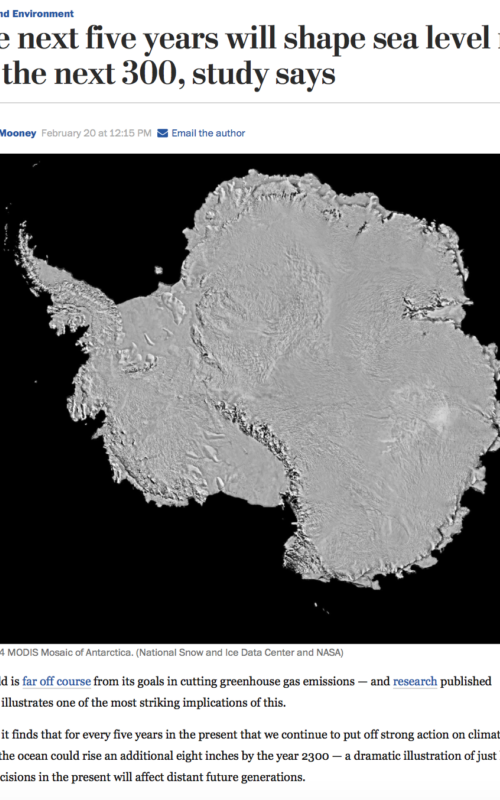
The Washington Post
The world is far off course from its goals in cutting greenhouse gas emissions — and research published Tuesday illustrates one of the most striking implications of this.Namely, it finds that for every five years in the present that we continue to put off strong action on climate change, the ocean could rise an additional eight inches by the year 2300 — a dramatic illustration of just how much decisions in the present will affect distant future generations.
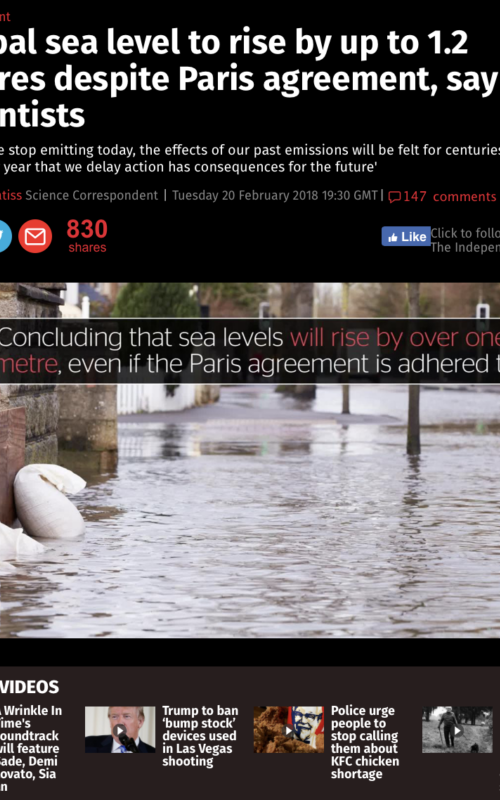
The Independent
Global sea levels are set to rise dramatically, threatening the homes of some 100 million people, even if the strictest greenhouse gas emissions targets are met, according to a new study.
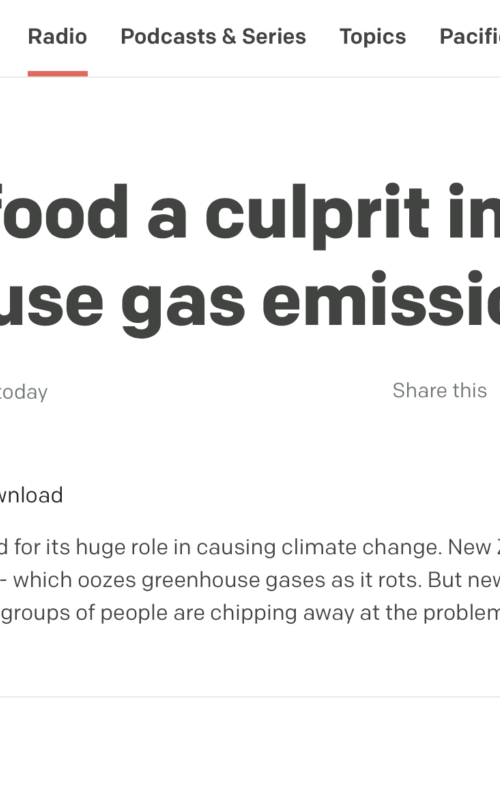
Radio New Zealand
Rotting food has been fingered for its huge role in causing climate change. New Zealand alone throws away 122,000 tonnes of food a year - which oozes greenhouse gases as it rots. But new research shows globally, the situation is even worse. Claire Fyson from Climate Analytics talks to Radio New Zealand about the Climate Action Tracker report on decarbonising the agricultural sector.
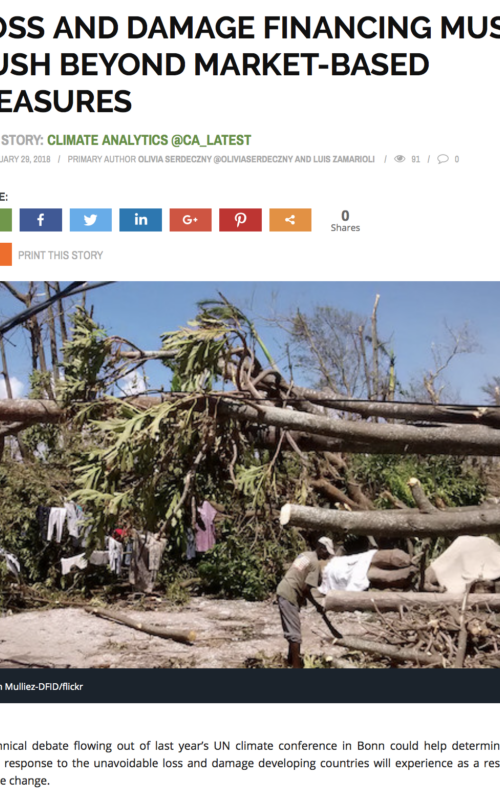
The Energy Mix
A technical debate flowing out of last year’s UN climate conference in Bonn could help determine the global response to the unavoidable loss and damage developing countries will experience as a result of climate change. “By now it is clear that climate change is as much an economic problem as it is an environmental one,” Climate Analytics states in a new blog post. For developing countries, in particular, “rising temperatures slow economic growth, [and] devastating climate-related impacts leave large negative imprints on economic development.”
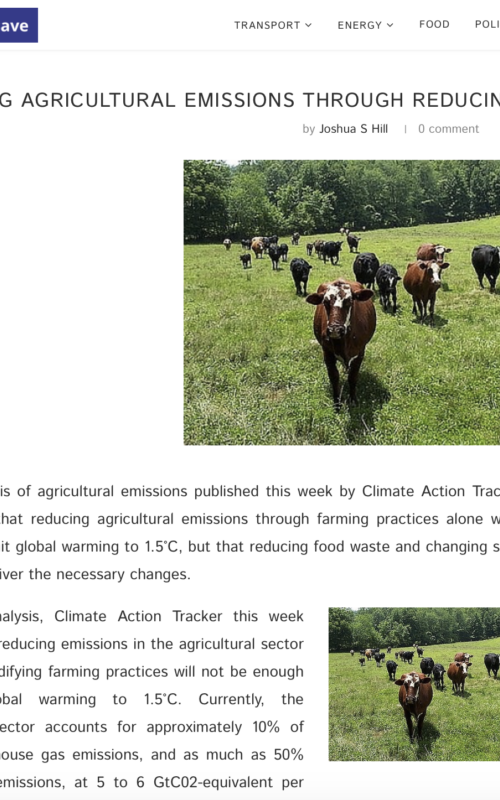
Planetsave
A new analysis of agricultural emissions published this week by Climate Action Tracker has pointed out that reducing agricultural emissions through farming practices alone won’t be enough to limit global warming to 1.5°C, but that reducing food waste and changing societies diet could deliver the necessary changes.
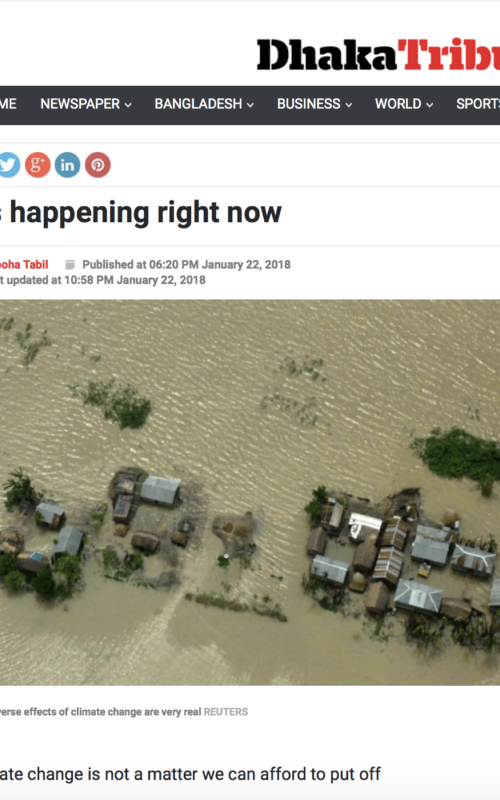
Dhaka Tribune
A report prepared for the World Bank by the Potsdam Institute for Climate Impacts Research and Climate Analytics says that in Bangladesh 40% of productive land will be lost in the southern region by the 2080s due to sea level rise. Bangladesh is already experiencing observable impacts of climate change.

Carbon Brief
Carbon Brief asked a range of climate scientists, including Climate Analytics CEO Bill Hare, what they think the main priorities are for improving climate models over the coming decade.
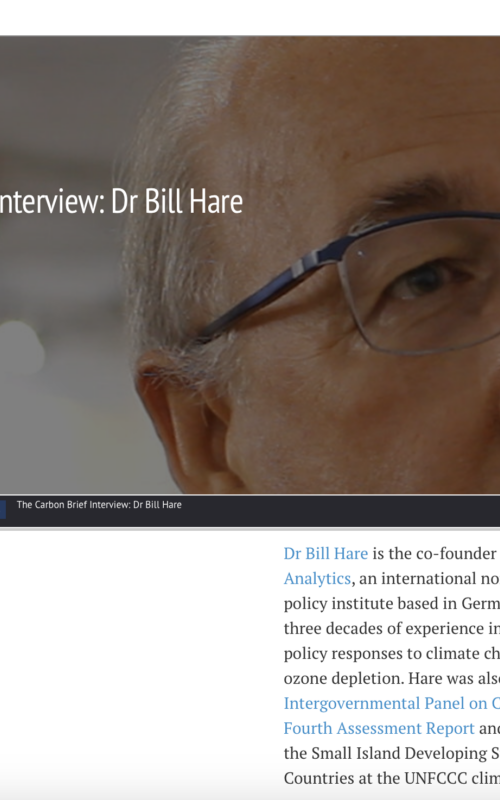
Carbon Brief
In this Carbon Brief interview during COP23 in Bonn, Dr Bill Hare talks about100% renewables, negative emissions, nuclear, CCS, 1.5°C vs 2°C, gas as a "bridge", global carbon tax, solar geoengineering, the end of coal era, ocean acidification and, yes, Donald Trump...
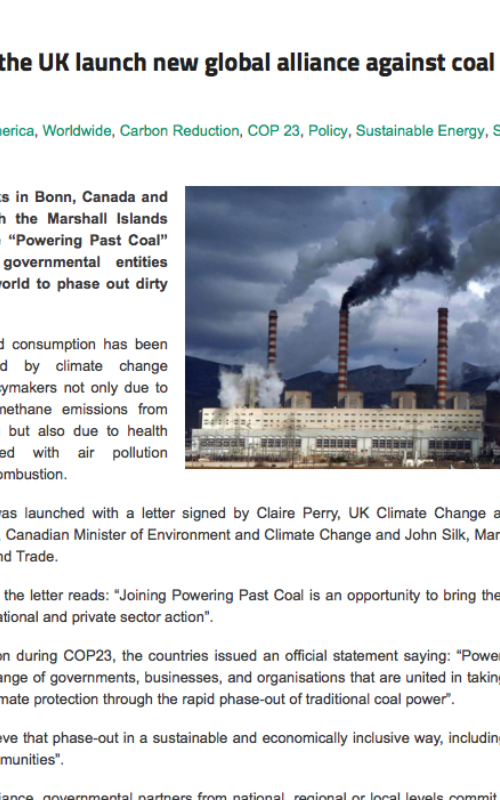
Climate Action
During climate talks in Bonn, Canada and the UK along with the Marshall Islands have launched the “Powering Past Coal” alliance inviting governmental entities from around the world to phase out dirty coal power plants. Its declaration refers directly to the benchmarks provided in our global coal report, to stress that the Paris Agreement requires coal phase-out by 2030 in the OECD countries and by 2050 in the rest of the world.
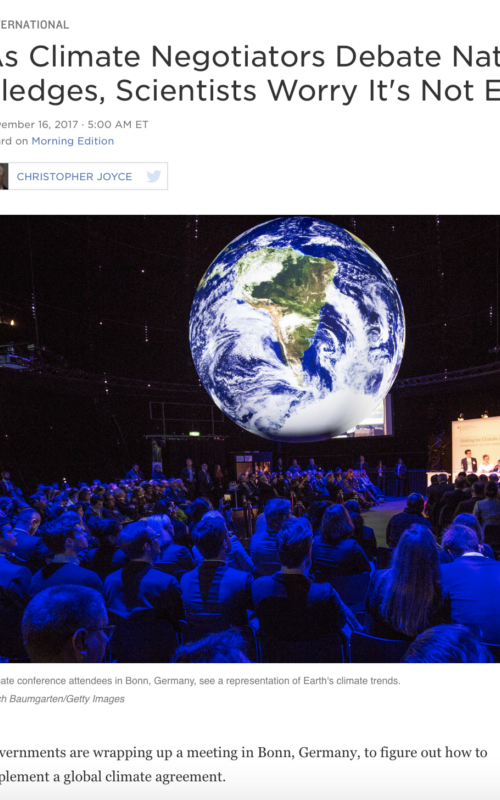
NPR
Governments are wrapping up a meeting in Bonn, Germany, to figure out how to implement a global climate agreement. The conference has focused on the pledges to reduce greenhouse gas emissions, which nations made two years ago in Paris. But even as negotiators debate the details, scientists are warning that carbon dioxide levels are again on the rise, and the efforts in Paris may not be enough.